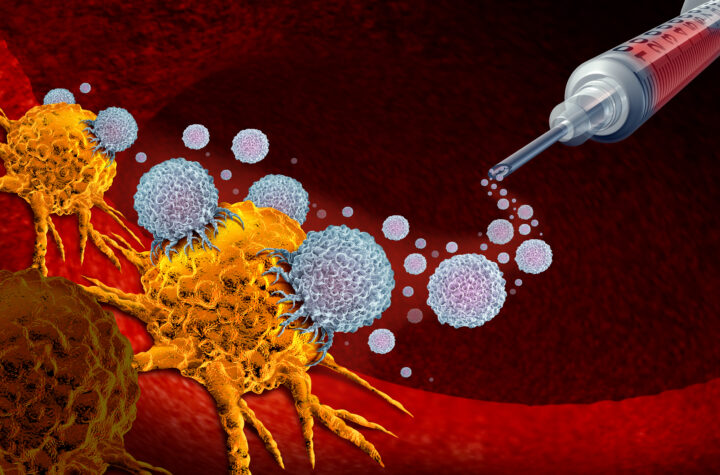From the early expansion of Covid-19 within China and later, the world, Biotech companies have been hard at work to create their antibody treatments to fight against this relatively unknown disease. For these companies, such as Novavax, their efforts have been realized in its +1000% stock increase. Practically overnight, Covid-19 has created a multi-billion dollar sector, in which the best companies will fight to be the leader of this “newborn” sector.
Although this new vaccination sector can create opportunities for lower-cap companies, the industry has recently been dominated by two “fighting titans,” Eli Lilly and Regeneron, with a combined market share of +200 Billion. The two companies are currently the leaders within the competition to find a vaccine and are well equipped with billions in cash to fuel their endeavors regarding Covid-19.
by John Coughlin
Titan #1 Eli Lilly
Aside from many Biotech companies founded in the late 20th century, Eli Lilly finds its origins in the late 19th century, in the year 1876. Founded by Colonel Eli Lilly, the company states its founder was “committed to creating high-quality medicines that met real needs in an era of unreliable elixirs peddled by questionable characters.” Although Eli Lilly does not compete with questionable characters anymore, it does compete to create a vaccination in a “questionable” time.
Currently, the company produces and distributes medications and drugs, such as the well-known Taltz and Trulicity. Eli Lilly is a well-trusted company within the medication field, which has seen sustained growth for the past decade and will continue to succeed in the future.
Titan #2 Regeneron
The other titan and direct competitor to Eli Lilly are Regeneron, a leading biotechnology company that studies and produces medicines. Dissimilar to Eli Lilly, Regeneron was founded in 1988 by Leonard Schleifer and Eric Manvers Shooter. Since their founding, Eli Lilly has seen tremendous growth over those thirty years, growing to a $60 billion valuation. This tremendous growth can be attributed to their “science to medicine” method, which has resulted in “seven FDA-approved treatments and numerous product candidates in development.” Although Regeneron is ⅓ of the company of Eli Lilly, their advancing technologies allow the company to compete in creating medicines and, more importantly, a vaccine for Covid-19.
Eli Lilly Covid-19 Efforts
From the start of the severe spread of Covid-19 in the United States, Eli Lilly has ramped up their laboratory work output and overall efforts in finding a vaccine. In their COVID Fact Sheet, published on May 26th, the company reported that they have “Repurposed labs at Lilly Corporate Center” and “Tested over 60,000 samples, a combination of samples from a drive-through and Indiana State Department of Health’s testing efforts.” These early company efforts prepared the company to launch “the world’s first study of potential Covid-19 antibody treatment in humans.” On June 1st, the company announced their “First patients had been dosed in a Phase 1 study of LY-CoV555.” Eli Lilly later suggested, “Should Phase 1 results show the antibody can be safely administered, Lilly will initiate a Phase 2 proof of concept study to assess efficacy in vulnerable populations”.
Along with their Phase 1 trials with LY-CoV555, Eli Lilly later announced the “first healthy volunteer had been dosed in a Phase 1 study of JS016, the lead antibody from Lilly’s collaboration with Junshi Biosciences.” With two trials underway, Eli Lilly is well suited to find a possible vaccination, as two is always greater than one.
Regeneron Covid-19 Efforts
Regeneron, like their founding, has come late to the game, but in a timely fashion. Since the beginning of the year, Regeneron has continued its efforts to create medicines, such as their most recent FDA approval of a Dupixent® in both adult and children use for severe Dermatitis. Although these efforts do now correlate directly with Covid-19, it does suggest Regeneron’s efficient “science to medicine” method, regarding antibody drugs.
On June 11th, the company announced the beginning of their “first clinical trials of anti-viral antibody cocktail REGN-COV2 for the treatment and prevention of Covid-19. This announcement of REGN-COV2 came eleven days later than Eli Lilly’s announcement of their first trials, which shows that the race is neck and neck. Currently, REGN-COV2 is in “two Phase 2/3 clinical trials for the treatment of COVID-19 and in a Phase 3 trial for the prevention of COVID-19 infection.”
In a significant move by Regeneron on July 7th, the company announced “the Biomedical Advanced Research and Development Authority (BARDA)” and “the Department of Defense Joint Program Executive Office for Chemical, Biological, Radiological and Nuclear Defense have awarded Regeneron a $450 million contract to manufacture and supply REGN-COV2.” This deal by Regeneron shows the potential value of a vaccine for Covid-19 and overall confidence in REGN-COV2. Although Regeneron may be a smaller company than Eli Lilly, it is making big moves and is advancing through trials with ease.
Who will win the Battle?
It is currently unknown to definitively answer who will find a possible vaccination for Covid-19 first, but an inference can be made when looking at which company is most financially capable of supporting vaccine trials.
Looking at Eli Lilly’s “Consolidated Balance sheet,” found in the company’s investor section, the cash and cash equivalents section is essential for their company longevity. Currently, the company has burned through $600 million of its cash and cash equivalents, from $2.3 Billion in Q4 2019 to $1.7 billion in Q1 2020. More important information will be provided in the company’s Q2 balance sheet regarding current company performance, but this Q1 report shows the early action of Eli Lilly in laboratory efforts regarding testing possible treatments and eventually, a vaccine.
Although Regeneron may be significantly smaller than Eli Lilly, the company is growing fast. Regeneron saw “First quarter 2020 revenues increase 33% to $1.83 billion versus first quarter 2019,”and “a net sales increase of 9% to $1.17 billion versus first quarter 2019.” Along with their growth in revenue and net income, Regeneron also had a $800 million increase in cash and marketable securities from $6.4 billion to 7.2 billion. This newly gained cash will be beneficial to the company for current and future trials and will allow Regeneron to move at a faster rate of production and delivery.
Looking Forward….
The struggle to find a vaccine is nothing less of a stressing and fast-paced process. With both Eli Lilly and Regeneron currently participating in trials, the battle is going to be hard fought. Although Eli Lilly is a larger company, Regeneron is moving at a faster pace both financially and scientifically.As I suggested earlier in this article, the company has grown to a $60 billion valuation in just thirty years. This smaller, yet powerful biotech company, will compete against the bigger titan, Eli Lilly, in The Battle for Covid Cash.
To follow Analyst John Coughlin, go to:
TikTok: Street Signs
Instagram: Stockmarketsigns








1 thought on “CLASH OF THE TITANS: A CORONA COMPETITION”
Comments are closed.